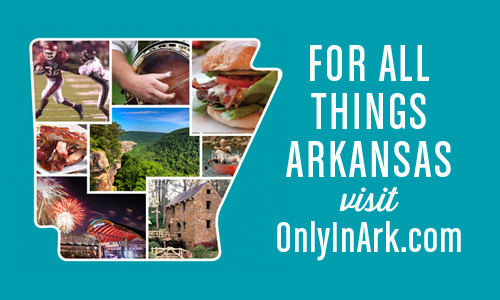Teaching the Easter story to teenagers can be a bit of a challenge. The curriculum is usually built towards younger children and involves a lot of cheesy activities and rituals. This Easter lesson for teens helps you discover new parts of the Easter story and tie together all the events that lead up to Passover and Holy Week while leading you towards an opportunity to bust a few myths along the way!
I’ve never taught this lesson that I wasn’t reminded of God’s indescribable grace and that I helped the students I was teaching learn something new. So many times, we hear the same story over and over and leave out a few details. If you lead kids/teens with mixed spiritual backgrounds, this will take you straight to the Bible and help you walk through many verses and passages with a new lens.

The students I work with come from a variety of spiritual backgrounds, so I always feel it safe never to assume what stories they know, how deep they have dug into a passage or verses, or that they have even read the passage I’m teaching that day before we cover it together. So, as I prepare, I usually try to keep it basic and ensure we have one good truth we aim to walk away with.
Since I really couldn’t find what I wanted online, I decided just to make up something myself. (Go figure!)

This post may contain affiliate links where I earn a commission for you clicking on a link in this post. If you purchase anything via my links, I may receive a small commission at no additional cost to you. I actively participate in Amazon Associates Affiliate Program. For more information, visit my Disclosure Statement and Terms & Conditions page.
I bought a basket of items at the Dollar Store, so we are not talking about something super expensive here. What’s more important is that you capture items that represent the stories of Holy Week, and you can use the activity to walk through the items together.
I’ll list the items below, but the lesson was very simple.
- Stuff an Easter basket or another container (plastic tub, bucket, wicker basket, etc would work) with all your items.
- Place the bucket in the middle of the table and ask each student to take an item or 2, depending on the number of students you are working with.
- Go around the room and see if the students can determine what their item might represent. If they can’t, have them pass until you can return to them later.
- It’s important to review all the stories you are covering beforehand. This will give you the background knowledge to teach the lesson and allow you flexibility and knowledge of any random questions that may arise. Instead of just going around the circle, you might call out items in the order and let them guess, then tell the stories of Holy Week in order.
- Conversation topics:
- items listed below and the Biblical story that goes along with them
- What are things we see at Easter that remind us of Jesus?
- How can we take the items we have seen today and use them as reminders in our everyday lives?
- How can we take the items we have seen today and use them to start conversations with others about Jesus?
- What one item that you have seen today will you keep thinking about this next week?
One tool I found really helpful was a listing of the chronological events of Holy Week and scripture references that go with each one. I think John 18 is a really great, condensed version of many of the stories that happened in the middle of the week. When I went over this, we talked in specifics about the events of Palm Sunday and Jesus riding into Jerusalem. We talked about the actions and reactions of the people and how Jesus must have felt that day on the back of the donkey. (I was trying to set them up for the opposite behavior of the people at the end of the week.) Our next conversation topic was the Last Supper. We talked about the setting – a borrowed friend’s house, reclining on the floor eating, not up on stools at a white cloth table like we usually see. We talked about Jesus washing the disciple’s feet and the conversation among the disciples. Our group seemed to think the air was pretty thick, and people probably talked in hushed tones. Many were confused by the things Jesus was saying, and Judas specifically probably introduced a paranoid tone to the room.

Earlier this semester, they spent several weeks demonstrating servant leadership by washing the feet of the children who come to the center on Thursday afternoons. So, our conversation turned towards Jesus’ washing of the disciples’ feet and really what He was teaching them at that moment. Because I knew many of my students were not as familiar with the events in the middle of the week surrounding the trials and mockery, we read through John 18 together. Again, this is a very condensed version of this part of the story, but it hits the highlights in a way we could cover together in our short time. Then, we talked about Good Friday. Oh, how I would have loved to go more into details about the events of the day. Instead, our conversation turned to the significance of the cross and that really was the most important thing for us to discuss together. Without the cross, none of it really matters!
We finished our conversation with an empty golden egg. While one of them really wanted there to be candy inside, but they understood where we were going. The empty tomb is what sets the story of Jesus apart from any other story. The empty tomb is a promise fulfilled. It was God’s promise to save His people from their sin; eternal separation and damnation. But, Jesus didn’t stay in the grave. Just as the conversation goes at the beginning of Luke, chapter 24. The words of Jesus himself, “Why are you looking in the place of the dead for someone who is alive? Jesus isn’t here! He has been raised from death.”
I knew yesterday afternoon just how important this conversation could be when I couldn’t find a cross at the store to buy. I hit 2 dollar stores in my town and neither had anything to do with a cross in their Easter section. Heck, neither had a cross anywhere in their store. That is why we must have this conversation.
I bet you are still wondering, what was in my basket!
Items in my basket:
1. palm branches – Palm Sunday and Jesus’ Triumphal Entry into Jerusalem
2. red wine vinegar and a honey bun (that’s the only “roll” type thing I could find) – Last Supper – also helped us talk about the action vs. the elements and that there is nothing magical about the cracker or juice/wine
3. wash rag – Jesus washed the feet of the disciples
4. seed packet – Jesus praying in the Garden
5. rope – this is what they used to arrest Jesus when Judas turned Him over
6. screen cleaner kit – the first round of trials found him to have a clean slate
7. sunglasses – Jesus kept his cool, he spent many of the trials just standing in silence and only spoke words of truth and Scripture when called upon
8. Knee support for gardening – symbolizing Jesus dragging the cross and falling along the way
9. chicken – Peter denied Jesus 3 times, just as He said he would before the rooster crowed
10. dice – the centurions played games and cast lots for Jesus possessions, making a mockery of Him
11. cross – the point of it all
12. travel pack of toiletries (body wash, lotion, body spray) – Jesus friends came and took care of His body and put Him in a borrowed tomb
12. rock – the tomb, a rock, was put in front of the tomb to seal it and a centurion was assigned to guard it (just in case He might try to get out!)
13. empty golden egg – our story is not over. He is Risen!

Teaching lessons from the Bible to teens is hard. They are not babies and don’t need all the craft projects. But, they do need the object lessons and something fun to break it all down help them remember. Try it. Let me know what works to help you connect with students in your ministry.

If you are looking for more Easter resources, check out this post on Easter Resources for the whole family. I share songs I love, age-appropriate ideas and links to daily devotionals.
- Holy Week Crafts and Activities for Preschoolers
- Easter Cards and Crafts with Toddlers – another fun activity that is not necessarily Biblically based
- Easter Basket ideas for kids and adults that include more than candy
- Easter Basket Ideas for Preschoolers – work great for stocking stuffers, too!
- Easter Resources – Lessons and Learning for the Lenten season
- Candy Bar Cake would be a great treat for an Easter Menu, just use Peeps, creme eggs, or other seasonal candies and sprinkles to make it festive
- What’s in my Basket: Easter Lesson for Teens – this lesson is great for Sunday School, small groups, classroom, or a gathering before a family meal.
- DIY Tie-Dye Towels are a great Easter Basket filler and a fun activity when cousins are together.
- Little Hammies – ham slider sandwiches that are great with leftover Easter Ham
- Egg Beaters Breakfast Casserole – maybe Easter Brunch is more your thing – this casserole makes it so easy that you can use something else to take up all your time – like an egg hunt!
- Pineapple Casserole – this is a great side dish for your Easter lunch or brunch spread.
- Springtime Cold and Fruity Salads – my grandmother’s recipes that we love in spring and summer
- Bunny Cake – an easy old family tradition that is fun year after
- Activities to do while you are stuck at home








